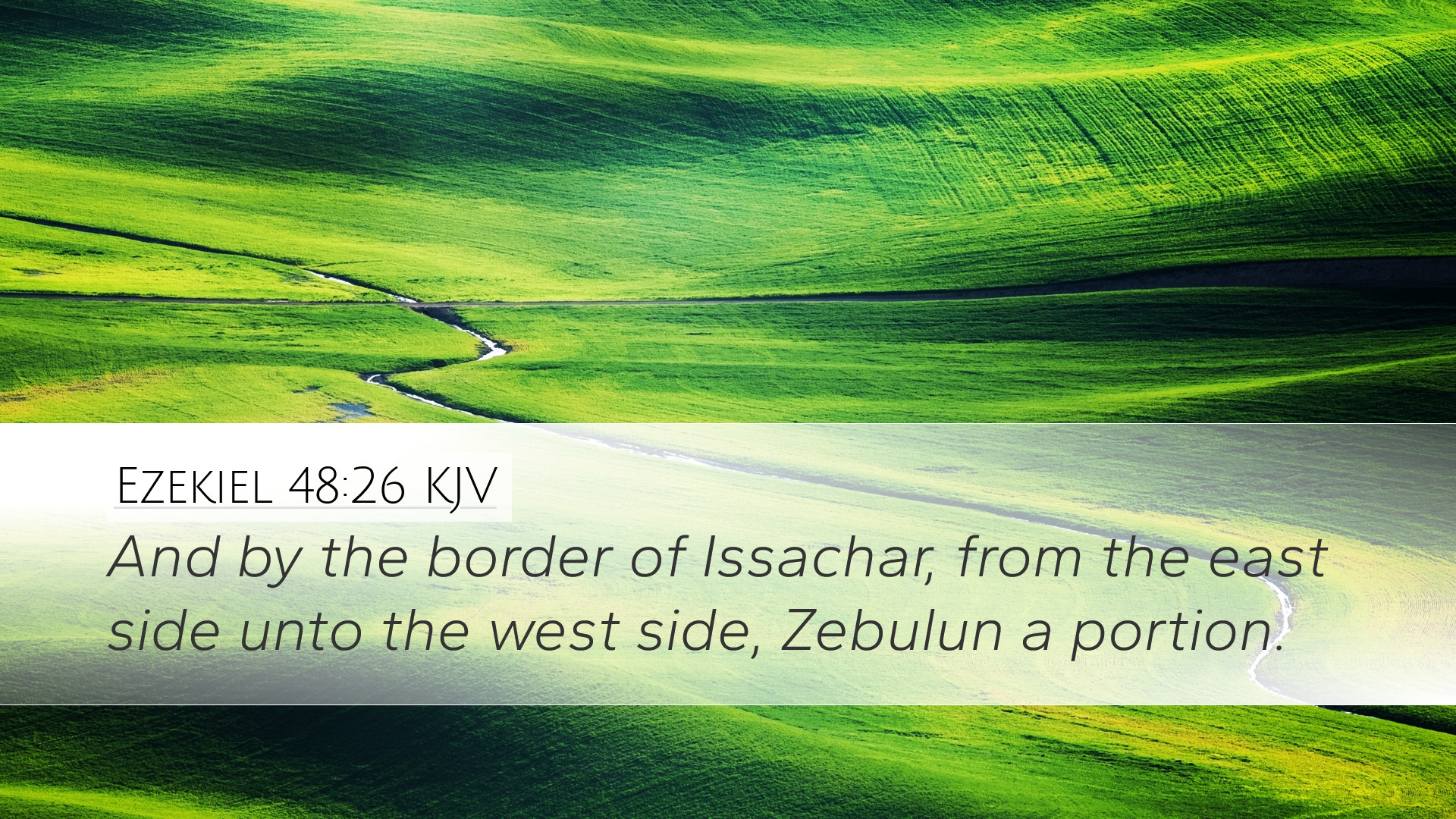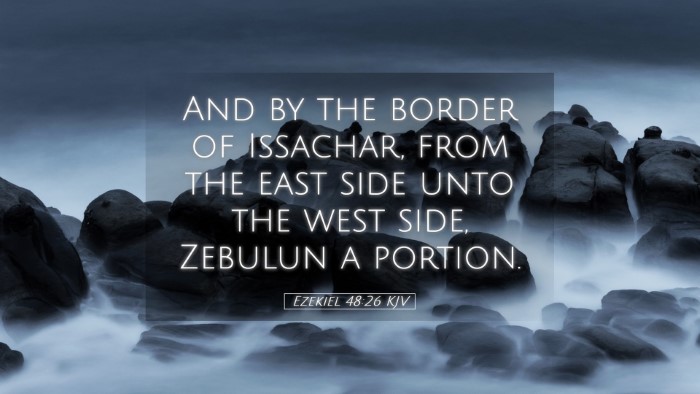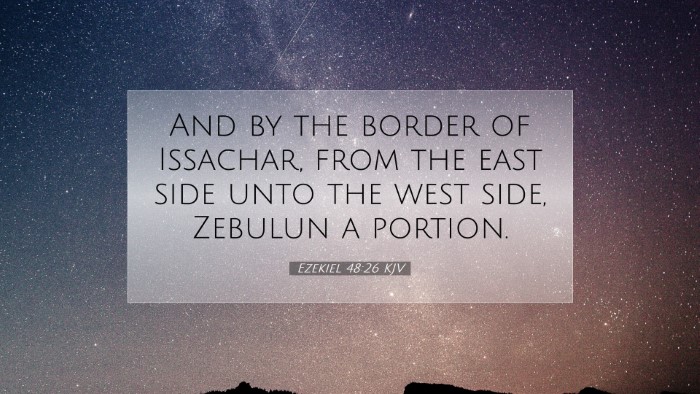Ezekiel 48:26 Commentary
Introduction: Ezekiel 48:26 presents insights into the division of the land among the tribes of Israel and the significance of each portion in the context of God's covenant and promises. This verse highlights the meticulous nature of God's instructions concerning the land, reflecting His faithfulness and attention to detail in fulfilling His purposes.
Verse Context
Ezekiel 48:26 states: "And beneath the tribes, from the east side unto the west, Benjamin, one portion." This verse falls within the final chapters of Ezekiel, where the prophet describes the allotment of land to the tribes of Israel in the vision of the new Jerusalem and the restoration of the nation following exile.
Insights from Matthew Henry
Matthew Henry emphasizes that the allocation of land to each tribe was not haphazard but designed by divine wisdom. In his commentary, he notes:
- Divine Order: Each tribe received its designated portion in a manner that symbolized their unique roles and heritage within the nation of Israel.
- Benjamin's Significance: The mention of Benjamin here is particularly poignant, as Benjamin was a tribe associated with God’s favor, being a son of Jacob and Rachel, and later, the home of the first king of Israel, Saul.
- Restoration Theme: This apportionment signals the hopeful restoration of Israel, wherein each tribe would reclaim its identity and inheritance, thus fulfilling God's covenant promises.
Insights from Albert Barnes
Albert Barnes offers a detailed perspective on the geographical and theological implications of the land division:
- Geographical Context: Barnes highlights that the arrangement of the tribes from the east to the west serves to illustrate God’s planned and perfect order in the restoration of Israel.
- Theological Implications: Benjamin, being allotted a significant area, represents not just a physical space but a reaffirmation of God’s covenant with His people, showing that despite their past disobedience, He remains committed to His promises.
- God’s Sovereignty: Barnes concludes that the careful designation of land underscores God’s sovereignty in nations and His authority over the destinies of men and tribes.
Insights from Adam Clarke
Adam Clarke presents critical observations regarding the spiritual implications of land distribution among the tribes:
- Symbolism of Land: Clarke views land as more than mere territory; it symbolizes the presence of God among His people. The land is where the people experience God's blessings, hence its significant role in their identity.
- Tribal Identity: The individual allotments foster a sense of belonging and unity among the people of Israel, emphasizing that God is the one who maintains their identity and heritage.
- Future Hope: Clarke also notes that the land partitioned symbolizes the hope that restoration brings, serving as a reminder to future generations of God’s faithfulness and enduring relationship with His people.
Application Today
The implications of Ezekiel 48:26 reach beyond historical context and resonate deeply with contemporary believers:
- Identity in Christ: Just as each tribe was given a distinct inheritance, believers today have a unique identity and purpose in Christ, rooted in God’s promises and faithfulness.
- God’s Sovereign Plan: Understanding God’s meticulous planning encourages believers to trust in His sovereignty in their own lives, knowing that He is working all things for good.
- Hope of Restoration: This verse can serve as a reminder of the hope Christians have in the ultimate restoration of all things in Christ. The land promised to Israel foreshadows the eternal inheritance believers look forward to in the new heaven and new earth.
Conclusion
Ezekiel 48:26 is packed with significance for the Israelites and offers rich insights for modern readers. The careful depiction of land allocation serves as a microcosm of God's relationship with His people, reinforcing themes of identity, restoration, and divine sovereignty. For pastors, students, and scholars, this verse invites deeper reflection on how God’s promises endure across generations, encouraging faith and hope in His providence.


